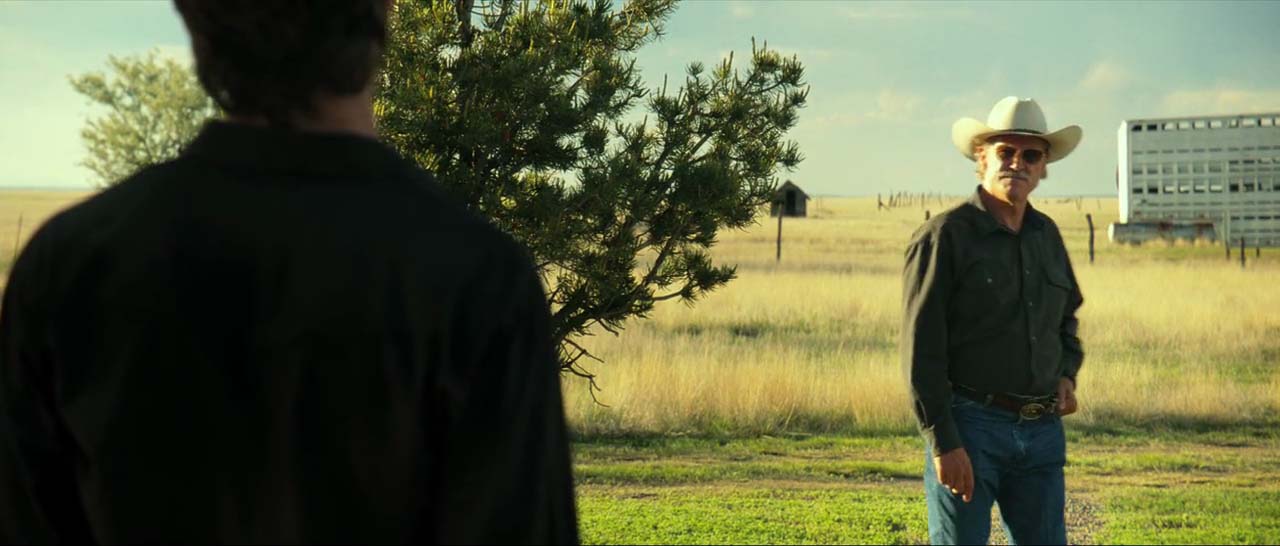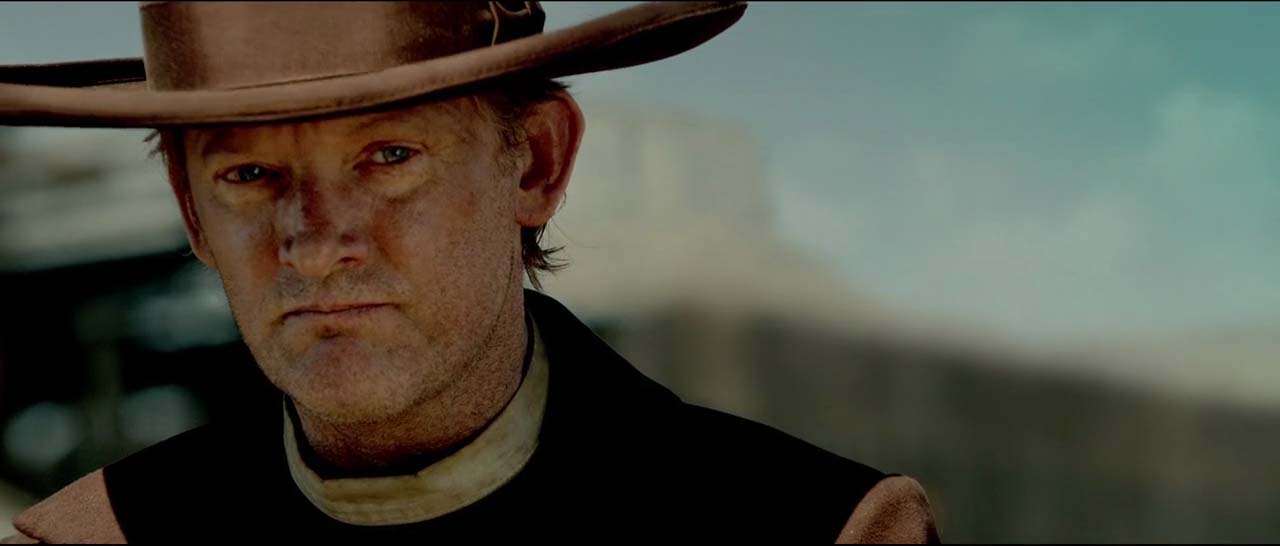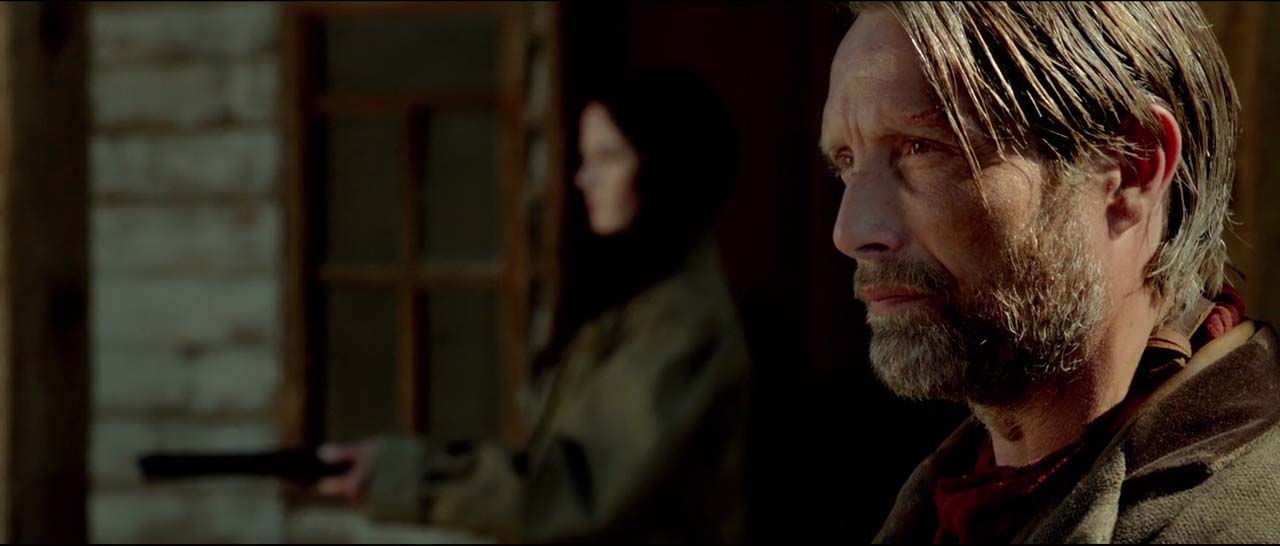A Danish film that attempts to rearticulate the Western genre according to the problematic facing contemporary European liberalism fails as a Western, but, in so doing, exposes the naivete of a European liberal culture and context that has never encountered the vagaries of the American Frontier.xxxxxxxxxxxxxxxxxxxxxxxxxxxxxxxxxxxxxxxxxxxxxxxxxxxxxxxxxxxxxxxxxxxxxxxxxxxxxxxxxxxxxxxxxxxxxxxxxxxxxxxxxxxxxxxxxxxxxxxxxxxxxxxxxxxxxxxxxxxxxxxxxxxxxxxxxxxxxxxxxxxxxxxxxxxxxxxxxxxxxxxxxxxxxxxxxxxxxxxxxxxxxxxxxxxxxxxxxxxxxxxxxxxxxxxxxxxxxxxxxxxxxxxxxxxxxxxxxxxxxxxxxxxxxxxxxxxxxxxxxxxxxxxxxxxxxxxxxxxx
It only takes until the first line of dialogue of Kristian Levring's film The Salvation is delivered in Danish that this movie requires a complete reconfiguration of expectations and some goodwill in order to find something interesting to take from it. The reasons for this have nothing to do with any kind of ignorant xenophobia, a fear of reading subtitles or listening to a foreign language, or even—which is closer to the problem—to see a quintessentially American cultural product and element of foundational identity appropriated by another culture, potentially distorted, reflected back in unexpected or annoying ways as a subtle form of cultural critique. Rather, the problem, if one is to grasp it properly, is one of fundamental cultural distinctions. Certainly, in a time when all films compete in a global economy it can be easy, particularly when films are engineered to resonate in the most generic way possible at the level of pictograms to submit to the argument that there are not longer in fact any such kinds of essentialist cultural distinctions. However, if one takes this film and all its myriad shortcomings as a Western seriously, it does provide an interesting commentary on a dimension of cultural differentiation that, at its bottom, traces a history of divergence from early American settlement and emigration from Europe to the current time of cultural and ideological contrast between what might be broadly considered European and American forms of liberalism.
Two Versions of the Western
First, this film is far too naive to be a Western. The motivations, on the one hand of the lawless Americans who rape Jon Jensen's (Mads Mikkelsen) freshly arrived wife and kill his son, make no sense at the level of actual critical perspective on Wild West Frontier lawlessness. Rather, they portray a more basic and generic form of psychopathic behavior that does little to flesh out any kind of actually-existing historical reality, as is its intention. On the other hand, the vengeance of Jon and his brother Peter (Mikael Persbrandt), who mysteriously disappears at the very moment of his involvement in the plot, is a mostly silent and silly effort that culminates in some crawling around under a burnt-out structure, some shooting at legs and knees, and the eventual entirely reluctant execution of the protagonist Henry Delarue (Jeffrey Dean Morgan). Real violence is avoided, the killing of even the most basically sympathetic characters (the town mayor, played by Jonathan Pryce, the High Sparrow) is not shown on-camera and the entire charade seems, more than anything, to express a real reluctance to submit to the Wild West Frontier attitude that one naturally associates with these sorts of films. In fact, it seems as if the actual point of the film is to inaugurate a new image of rugged-individualism in the form of a morality derived from a more conventional European liberal social concern. Jon stands strong in the face of every opportunity to betray his moral and ethical world-view, saves the abused former wife of the one who killed his son, and only very reluctantly, when forced to his very limits by the psychopathic behavior of those around him, defends himself. He doesn't strike-out with any kind of unjustified vengeance; rather, he simply maims and then, once the injury fails to prevent further illegitimate violence against him, reluctantly kills. In short, the film, entirely misses that actual substantive emotional logic of conflict in the Western Frontier and replaces it with a psychotic violence, on the one hand, and, on the other, an overly sanctified social moralism that attempts to erect a new figure of John Wayne Justice. And while the film does not support this effort, it seems to take the further Lars von Trier step of thinking that it is in fact self-aware of the inherent contradiction of its attempt but that, in fact, the strength of its statement (e.g., Jon's overly self-assured entreaty that the faux-Western Sheriff 'Leave This Place') elevates the film to a kind of caricature whose failure stands in the face of its contradictions on account of the force of its will alone. In this way, rather than being a real Western, the film is an annoying provocation in the form of an appropriation of the Western genre and cultural form to portray, were it not for the existence of an entirely other logic of the Frontier Spirit. an entirely laughable and implausible construct.

A more accurate reflection of what might be considered an American Rugged-Individual Frontierism can be found in a film like the recent Hell or High Water. Here, anti-social behavior has a legitimate basis in the reality that Toby (Chris Pine) and his brother Tanner Howard(Ben Foster) are faced-with in the foreclosure of their family home at the hands of exploitative banks undermining hard-working Americans' ability to make a living1. This is generally the way in which 'criminality' is more truthfully presented, and the way in which it works to reflect the reality of a Wild West: rather than being the product of amoral intentions, 'crime' arises through the undertaking of certain actions that have no obvious alternative and that have the effect of involving their perpetrators in unpredictable situations from within which the moral compass for making decisions has withdrawn, leaving them unclear as to what they are any longer supposed to do and susceptible to lashing out or acts of passion. Rationality recedes leaving the emotional logic of its underbelly exposed. The Sheriff (Jeff Bridges) pursues the brothers casually in the dutiful role of a retiring Sheriff who is then confronted with the moral complexity of the situation. As others he encounters support the brothers (the waitress) and publicly exhort the virtues of returning the favor to the bankers, the Sheriff is left, on the one hand, conflicted about the proper location of blame for the death of his partner in the course of the pursuit (the killing of the Sheriff's partner, played by Alberto Parker, in his last stand on the mountain-top): on the one hand, he is motivated by an ordinary sense of justice for his dead partner while, on the other hand, unsure whether or not the context within which the boys operated has in effect exonerated the surviving brother from the arbitrary application of the law. This is the space of the actual Wild West: its 'wild' precisely because clearly delineated guidelines for action don't exist, because the situations one is faced with are constantly fluid, lack precedent, contradict rationality and coincide with a more generalized process of historical transformation (in the 1800s: the colonization of the American West; Today: changes in the structure of political and economic control)2.
The problem, however, is that isolating the presence of the emotional logic of this really-existing Frontier (i.e., the limit of human progress) in the history of cinema in the Western is that so much of it has become precisely what The Salvation models itself on: a superficial conflict between Good and Evil, between a clear morality and a well-defined criminality submitted to a process (the duration of the film) within which justice (or perhaps the lack of it) is meted out. If the original Western ever seriously attempted to pay homage to its historical, real-life antecedents, it would have had to achieve the presentation of these irreconcilable ambiguities and contradictions, which is what the New American Western seems to be precisely doing today. In this sense, what The Salvation represents isn't salvation from the thuggery and insanity of the Wild West, deliverance from the difficulties inherent to its transformational context in the form of a clear social morality; rather, it represents a simple ignorance or deliberate avoidance of the actual problem of morality such situations present, from within them, recasting them instead as predictable situations of Good versus Evil that, where the moral ambiguity and complexity of the situation is concerned, only provides the appearance of recognition through the forceful application of a form of multi-cultural tolerance.
A European Articulation of the Frontier Spirit

The European context, its history, social and urban environment is much different from that of the United States: whereas one might say, broadly speaking, that the American context is dominated by the space to create one's own version of life independent of others, the European context could be described as being defined by social and urban density existing in a kind of post-modern relativistic foam3. In the former, this context is associated with a problem of correspondence between one's rational plans and the possibility of realizing them in a context of impoverished norms, alienation, atomization, distance and separations; in the latter, this context could be said to concern the limitations of one's own possibilities and life-project that occurs through the breakdown in the calculus of increasingly heightened urban self-reflexivity that can no longer integrate hyper relativization.
In this way, there is a uniquely European space of social emergence and transformation that mirrors that of the Western Frontier. This is a space occurring at the most dense points of the social space where identity creation becomes a serious problem when it becomes impossible to make choices specifically suited to one's own desires that also (self-reflexively) pays respect to others without necessarily imposing on and subsequently colonizing their spaces (and thus, transgressing liberalism's moral calculus). For the European context, the Western could be considered located in an internal space, in an intra-psychic frontier that reflects these micro-transformations of European social life.
Viewed as an extension of the European cultural bind elaborated in films such as Jan Troell's Il Capitano, The Hunt, Lars von Trier's Antichrist, the problem with The Salvation becomes more clear: through its incorporation of a European (or Lars von Trier-esque) meta-awareness, the film attempts to re-inscribe its version of European morality into the Western through the same kind of 'Force of Will' elaborated in a film like von Trier's Melancholia. In that film, identity formation at the limits of post-modern relativism becomes a simple act of faith, of the basic belief in the truth that to create any kind of structure at all one must simply, paradoxically, first erect anything at all—something provisional. The Salvation makes the mistake of presuming the basic applicability of a European identity formation problem with that concerning choice and morality in the unstructured American Wild West Frontier. This produces a situation in which the film presumes that the reality of frontier struggle can be tamed by the simple act of choosing to resist its dark temptations towards amorality: a socially-reflexive European concern, while debased and disregarded in this chaotic frontier context, can eventually prove itself equal to the challenge of restoring justice and the nobility of concern for others. What is necessary, according to this thesis, is to draw only temporarily and reticently on the taboo human potential for violence as the simple expediency of achieving a moral prerogative.
So, while the European post-modern problem of identity-formation has produced a basis for re-thinking its self-reflexive multi-culturalism on new terms, it is simply under-experienced with true frontier spaces through which to further develop it to a point where it can convincingly grapple with the realities of the Western Frontier4. In this way, the The Salvation as a cinema production turns out to be an uncanny mirror of the actual historical record: whereas Danes arriving in America at one point in the 1800s may have actually been as naive as they seem in this film, today they are undoubtedly well-adjusted and participating in a wholly different (American) reality than contemporary (European) Danes who can only play-act as modern-day frontiersman through the globalization of the films they make, but who appear, just as their forebears in history did when confronted with the reality of the Western Frontier, as quite naive. Because the truth is that: while a salvation is possible from within these kinds of frontier spaces that depends on the basic decency of humanity, it conforms to a logic that is as harsh as life itself.
Footnotes
Counterpointed, for instance, in the scene where a modern-day cowboy, herding his cattle across the road because of a flooded creek, says 'no wonder [his] kids don't want to do this shit', which raises the issue of a more generalized laziness. ↩
And it is from within this context that something like the HBO series Deadwood can elaborate a radically different logic of (improvised) inter-personal relationship upon which a new concept of Rugged Frontierism emerges: one whose motivations conform to the specificity of distinct personal histories and their emotional 'biases' and includes a concept of justice that deals directly with the particularity of the afflicted parties themselves in a given moment. This is a conception of the Frontier that recognizes the freedom of the individual bound-together with the destiny of a larger community, and that pays respect to the always partial procedure through which the truth of a situation emerges over the course of time. Interestingly, this sort of justice seems uncannily close to the Sharia law portrayed in the Iranian film A Separation and which is also precisely the topic of Derek Cianfrance's film The Place Beyond The Pines: that there is an entirely other concept of truth that doesn't concern absolutes, but follows what Badiou calls the 'logic of the event'. ↩
See his three part book Spheres: Bubbles, Globes, and Foams. ↩
Jon gives others the opportunity to be decent, like a good European neighbor (even in the final moment when Jon is outnumbered, he insists on demonstrating his faith in the human decency embodied in Jon, another human-being). And, much like the situation at the very opening of the film, when Jon is in the carriage and the American begins to grope his wife and he replies with a polite 'I don't think you should be doing that', to give this person who is already way beyond the limits of human decency still the opportunity to re-appraise his behavior, rather than being the typical Western Good Guy semi-comical threat (after all, this isn't exactly a polite train to Vienna). In fact, the thinking behind this kind of good behavior can be more clearly understood by considering the villain's name, Delarue ('de la rue', or 'of the street'). This is something that only reinforces a kind of middle-class, bourgeois concept of the Wild West: that is, that ruggedness, passion, and violence can be framed according to notions of class and good, decent behavior. ↩
